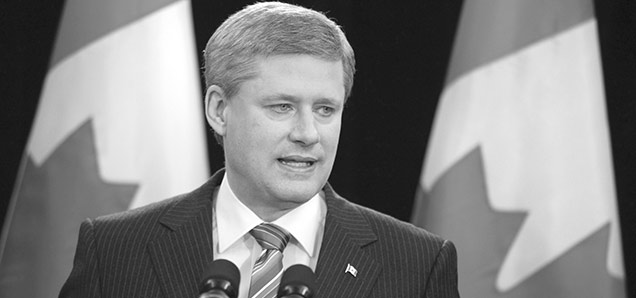Harper takes flak over Iraq decision
 CREDIT: MIKE RIDEWOOD/THINKSTOCK
CREDIT: MIKE RIDEWOOD/THINKSTOCKPrime Minister Stephen Harper's decision on Canada's involvement in Iraq calls into question how other party leaders would respond if they were in the PM's shoes.
For the first time since the American military withdrew from Iraq in 2011, they’re back. Naturally, Canada is following in their boot prints, although only metaphorically because the Canadian contribution will involve cruising overhead in CF-18 fighter jets and bombing Islamic State of Iraq and Syria (ISIS) targets.
Although Canadian soldiers were posted in Afghanistan in 2003, that didn’t stop the Canadian public from associating every development in the Second Gulf War with additional requests for military support. Canada’s reputation as a stalwart defender of freedom and personal liberty is a legacy that may soon be relegated to the baby boomer’s generation as future Canadians inherit the reputation of token contributions.
Internationally speaking, Canada is in an enviable position both geographically and societally.
We’re located in a part of the world relatively free of natural disasters and we live in a land bountiful in natural resources. These are elements of the equation that many Canadians take for granted.
Too many, particularly young Canadians, are content to sit back and remain ignorant of the role that Canada plays internationally.
ISIS leaders are directing fighters to target both civilians and military operatives of the countries that are contributing to the bombing effort, even mentioning Canada by name.
The last time that Canada became involved in an American-led initiative in the Middle East, it became a lengthy and resource-intensive commitment that no one is eager to repeat. With that in mind, a mere six Canadian fighter jets with support crew are soon to be taking off for a six-month mission to diminish the operating capacity of ISIS.
Although there is little else that Prime Minister Stephen Harper could commit to given the infancy of the operation, allowing debate on Canada’s involvement when the decision ultimately rests with him is an intriguing decision. It seems to be an effort by the PM to dissociate himself from what could turn out to be an unpopular decision.
The federal leaders of both the Liberal Party and the NDP have condemned the deployment of any Canadian Forces to Iraq. In the case of the latter, it has more to do with an historic refusal to approve of any military action that could be perceived as war, while the former has failed to cite any compelling arguments.
Although it’s the responsibility of the opposition to question every decision the Prime Minister makes, it begs the question: How would Liberal Leader Justin Trudeau and NDP leader Thomas Mulcair respond respectively if they were in the hot seat?
A country’s reputation is earned, or destroyed, by the actions taken during times of international turmoil. The Canadian Forces have generated immense international admiration and gratitude for their heroic behaviour in the most trying of conflicts, securing citizens a warm welcome when they travel the globe. Being a voice for democracy and personal liberty won’t always be a popular decision, but it’s the willingness to be that voice that has made Canada what it is today.
Editorial opinions or comments expressed in this online edition of Interrobang newspaper reflect the views of the writer and are not those of the Interrobang or the Fanshawe Student Union. The Interrobang is published weekly by the Fanshawe Student Union at 1001 Fanshawe College Blvd., P.O. Box 7005, London, Ontario, N5Y 5R6 and distributed through the Fanshawe College community. Letters to the editor are welcome. All letters are subject to editing and should be emailed. All letters must be accompanied by contact information. Letters can also be submitted online by clicking here.













